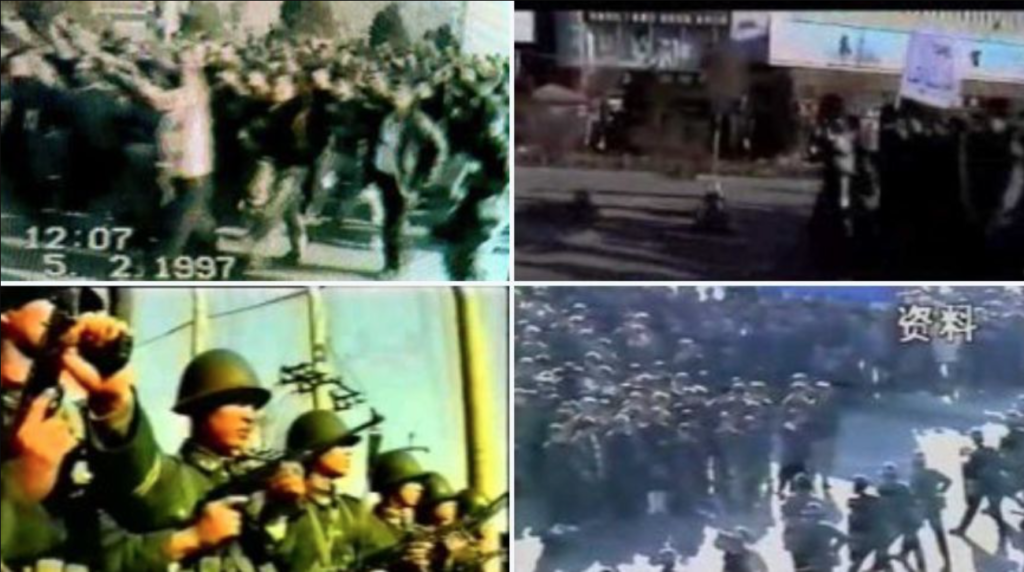UHRP Commemorates 25th Anniversary of Live-Fire Killings of Peaceful Uyghur Protesters in Ghulja

February 4, 2022, 9:00 a.m. EST
For Immediate Release
Contact: Omer Kanat +1 (202) 790-1795, Peter Irwin +1 (646) 906-7722
The Uyghur Human Rights Project (UHRP) commemorates the 25th anniversary of the Ghulja Massacre. The Chinese state massacre of Uyghurs gathered for a peaceful demonstration on February 5, 1997 was a lost opportunity for the international community to address gross violations of human rights in East Turkistan. UHRP calls on responsible actors to now hold China to account for the ongoing genocide of the Uyghur people.
On February 5, 1997, in the city of Ghulja, Chinese security forces opened fire on Uyghurs who were peacefully protesting a state crackdown on a burgeoning civil society movement. This movement was a grassroots effort to address social issues, as well as to encourage artistic performance and moral and religious principles through the Uyghur cultural practice of meshrep.
The initial violent crackdown was followed by mass arrests and abuse of hundreds of protestors, with the security forces detaining thousands in the subsequent weeks, and carrying out numerous executions in the following months.
“We must keep reminding the world of the state violence enacted against Uyghurs in Ghulja 25 years ago. The victims have never received justice, and the massacre demonstrates what happens when the world does not act. The Chinese government should have been held to account for the murder of Uyghurs in Ghulja. Without an outcry, China is emboldened to continue its repression of Uyghurs, and there is no accountability or justice for families who have lost loved ones,” said UHRP Executive Director Omer Kanat.
Mr. Kanat added, “Now is the time to hold China responsible for its atrocity crimes against Uyghurs. In addition to mass arbitrary detention and imprisonment, a systematic campaign to eradicate Uyghur culture, religion, and language is in place. Ongoing abuses also include widespread forced labor, enforced disappearances, and coercive birth prevention campaigns. No government should escape consequences for these actions. Those murdered in Ghulja were calling for basic community needs to be met. Today, the very survival of the Uyghur people is at stake.”
In commemorating the Ghulja massacre, we are reminded that China’s current policies are not a sudden turn but instead an escalation of a long history of violent suppression of Uyghur culture and any social organization outside of the control of the state. The escalation of suppression is now a campaign of genocidal forced assimilation, including torture and killings of members of a group, and efforts to prevent births within the group and transfers of their children, aimed at bringing about its physical destruction in whole or in part as laid out by the 1948 UN Genocide Convention.
Read more:
Channel 4 UK: China’s Hidden War [exclusive video reporting on the Ghulja Massacre], 1997
Amnesty International: Gross Violations of Human Rights in the Xinjiang Uyghur Autonomous Region, 1999 (pages 18-25)
